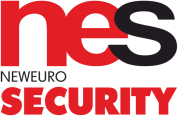Imagine a bustling multi-tenant building, where numerous businesses coexist and thrive. In this dynamic environment, ensuring the security and efficiency of operations is paramount. Access control systems emerge as the unsung heroes, silently working behind the scenes to regulate entry, streamline operations, and safeguard the building and its occupants. Let’s explore the crucial role of access control in multi-tenant buildings and the myriad benefits it brings to all stakeholders involved.
Enhancing Security and Efficiency: The Importance of Access Control Systems
In the ever-evolving landscape of multi-tenant buildings, security and efficiency go hand in hand. Access control systems play a pivotal role in bolstering both aspects, offering a comprehensive solution that addresses the unique challenges of shared spaces. By effectively managing access to the building and its various areas, access control systems create a secure environment while optimising operational efficiency for tenants, building management, and visitors alike.
Safeguarding Multi-tenant Buildings: The Benefits of Access Control
Access control systems bring a multitude of benefits to the realm of multi-tenant buildings. They serve as the first line of defence, protecting against unauthorised access, theft, and other security threats. With the ability to regulate entry points, these systems ensure that only authorised individuals gain access to specific areas, safeguarding sensitive information and assets. Moreover, access control systems contribute to a sense of safety and peace of mind, enhancing the overall tenant experience within the building.

Regulating Access for Multiple Occupants: The Power of Access Control Systems
In the intricate ecosystem of multi-tenant buildings, access control systems provide a powerful tool to regulate access for the various occupants. By assigning unique credentials to each tenant, these systems enable granular control over who can enter different areas within the building. This capability ensures that tenants have access to their designated spaces while preventing unauthorised entry into other tenants’ premises, promoting a secure and harmonious coexistence.
1. Securing Shared Spaces: Controlling Entry in Multi-tenant Buildings
One of the primary functions of access control systems in multi-tenant buildings is to control entry into shared spaces. From lobbies and elevators to communal facilities, these systems enable precise management of access, allowing tenants and authorised personnel to navigate through the building seamlessly while safeguarding restricted areas from unauthorised entry.
2. Streamlining Operations: Enhancing Efficiency with Access Control
Access control systems contribute significantly to streamlining operations within multi-tenant buildings. They eliminate the need for traditional lock and key mechanisms, enabling tenants and building management to manage access digitally. This digital approach improves efficiency, eliminating the hassle of physical key management, reducing the risk of lost or stolen keys, and providing a more convenient experience for tenants and staff.
3. Customised Access Levels: Tailoring Security for Individual Tenants
Every tenant within a multi-tenant building may have unique security requirements. Access control systems offer the flexibility to tailor access levels and permissions based on individual tenant needs. By customising access parameters, building management can ensure that each tenant has appropriate access to their designated areas while maintaining the overall security of the building.
4. Integration with Other Systems: Creating a Comprehensive Security Solution
Access control systems have the capability to integrate seamlessly with other security systems, such as video surveillance, alarm systems, or visitor management platforms. This integration creates a comprehensive security solution, where data from various systems can be correlated and analysed, enabling proactive threat detection, efficient incident response, and effective management of overall building security.
Choosing the Right Access Control System: Factors to Consider for Multi-tenant Buildings
Implementing an access control system in a multi-tenant building requires careful consideration of several factors. These include the size and complexity of the building, the number of tenants, scalability, ease of use, and integration capabilities with existing infrastructure. Engaging with experienced security professionals can provide valuable guidance in selecting the most suitable access control system that meets the unique requirements of the building and its occupants.
Best Practices for Implementing Access Control in Multi-tenant Buildings
Implementing access control systems in multi-tenant buildings necessitates adherence to best practices. Conducting a comprehensive security assessment, involving all stakeholders in the decision-making process, and ensuring proper installation and configuration are vital steps. Ongoing maintenance, regular updates, and periodic audits contribute to the continued effectiveness and reliability of the access control system.
Tenant Education and Collaboration: Ensuring Effective Use of Access Control
The success of an access control system in a multi-tenant building relies on effective tenant education and collaboration. Educating tenants on the importance of access control, providing clear guidelines on access protocols, and encouraging communication between tenants and building management foster a culture of security awareness and cooperation. Regular communication channels and feedback mechanisms further enhance the overall effectiveness and efficiency of the access control system.

Future Trends in Access Control: Advancements for Multi-tenant Buildings
Access control systems are continuously evolving to meet the ever-changing security landscape. Future advancements may include the integration of emerging technologies like facial recognition, biometrics, mobile access solutions, and cloud-based platforms. These innovations offer improved convenience, scalability, and flexibility, further enhancing the security and efficiency of multi-tenant buildings.
FAQs
How does access control improve security in multi-tenant buildings?
Access control systems enhance security in multi-tenant buildings by regulating entry, preventing unauthorised access, and protecting sensitive areas and assets from potential threats.
Can access control systems be customised for individual tenant needs?
Yes, access control systems can be customised to tailor security measures for individual tenants, ensuring they have appropriate access to their designated areas while maintaining overall building security.
What factors should be considered when choosing an access control system for multi-tenant buildings?
Factors such as building size and complexity, scalability, integration capabilities, and guidance from security professionals should be considered when selecting an access control system for multi-tenant buildings.
Final Thoughts
Access control systems play a crucial role in ensuring the security and efficiency of multi-tenant buildings. By regulating access, streamlining operations, and offering customization options, these systems contribute to the harmonious coexistence of multiple occupants. Embracing the right access control solution, guided by experienced professionals, empowers building management to create a safe and secure environment that meets the unique needs of each tenant.
At Nes Security, we understand the importance of access control in safeguarding your workplace. Our team of experts is ready to guide you through the process, explaining the various options available and helping you select the right access control system for your specific needs. From installation to customization, we provide comprehensive support to ensure seamless integration of access control into your premises. Trust Nes Security to enhance your workplace security with our expertise and dedication. Contact us today to get started.


